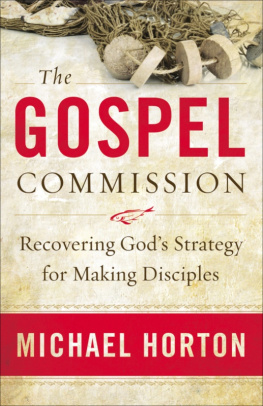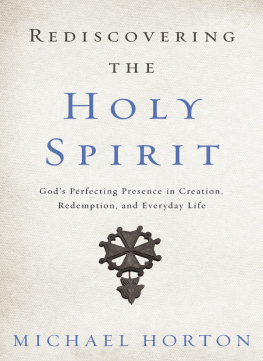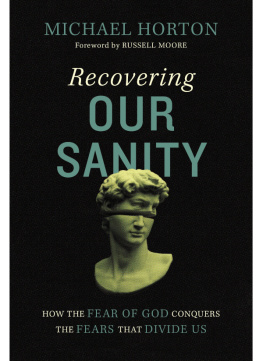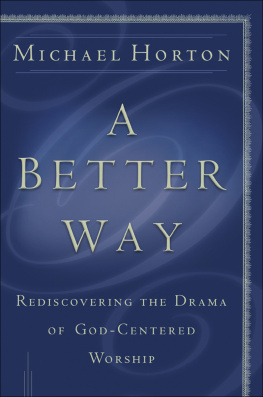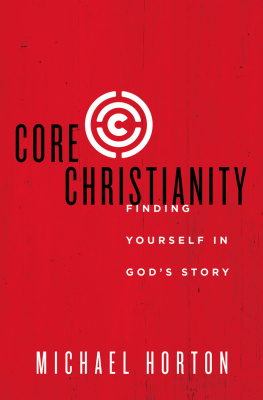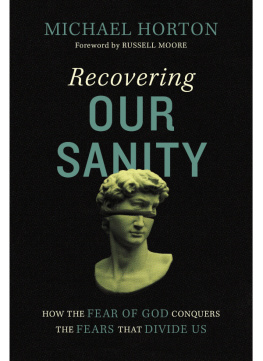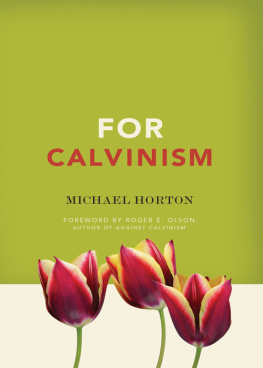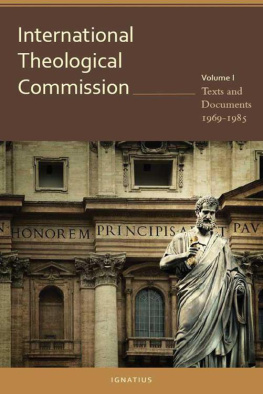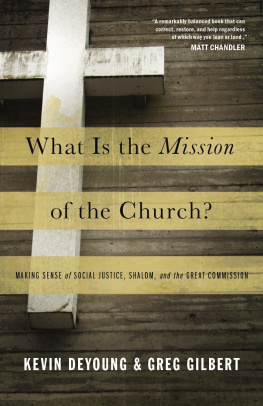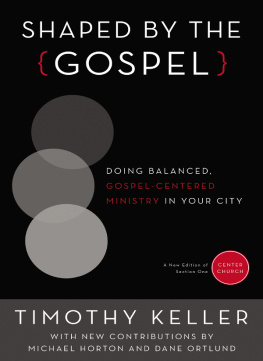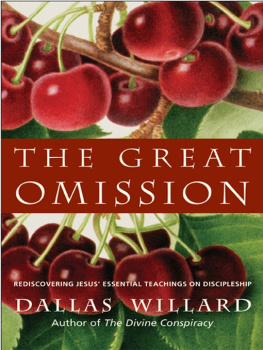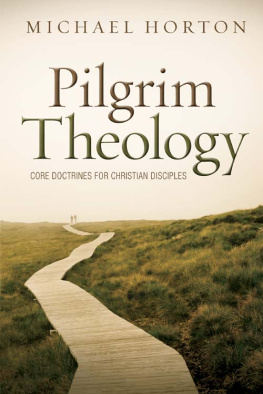Michael Horton - The Gospel Commission: Recovering Gods Strategy for Making Disciples
Here you can read online Michael Horton - The Gospel Commission: Recovering Gods Strategy for Making Disciples full text of the book (entire story) in english for free. Download pdf and epub, get meaning, cover and reviews about this ebook. year: 2011, publisher: Baker Publishing Group, genre: Religion. Description of the work, (preface) as well as reviews are available. Best literature library LitArk.com created for fans of good reading and offers a wide selection of genres:
Romance novel
Science fiction
Adventure
Detective
Science
History
Home and family
Prose
Art
Politics
Computer
Non-fiction
Religion
Business
Children
Humor
Choose a favorite category and find really read worthwhile books. Enjoy immersion in the world of imagination, feel the emotions of the characters or learn something new for yourself, make an fascinating discovery.
- Book:The Gospel Commission: Recovering Gods Strategy for Making Disciples
- Author:
- Publisher:Baker Publishing Group
- Genre:
- Year:2011
- Rating:3 / 5
- Favourites:Add to favourites
- Your mark:
- 60
- 1
- 2
- 3
- 4
- 5
The Gospel Commission: Recovering Gods Strategy for Making Disciples: summary, description and annotation
We offer to read an annotation, description, summary or preface (depends on what the author of the book "The Gospel Commission: Recovering Gods Strategy for Making Disciples" wrote himself). If you haven't found the necessary information about the book — write in the comments, we will try to find it.
The Gospel Commission: Recovering Gods Strategy for Making Disciples — read online for free the complete book (whole text) full work
Below is the text of the book, divided by pages. System saving the place of the last page read, allows you to conveniently read the book "The Gospel Commission: Recovering Gods Strategy for Making Disciples" online for free, without having to search again every time where you left off. Put a bookmark, and you can go to the page where you finished reading at any time.
Font size:
Interval:
Bookmark:
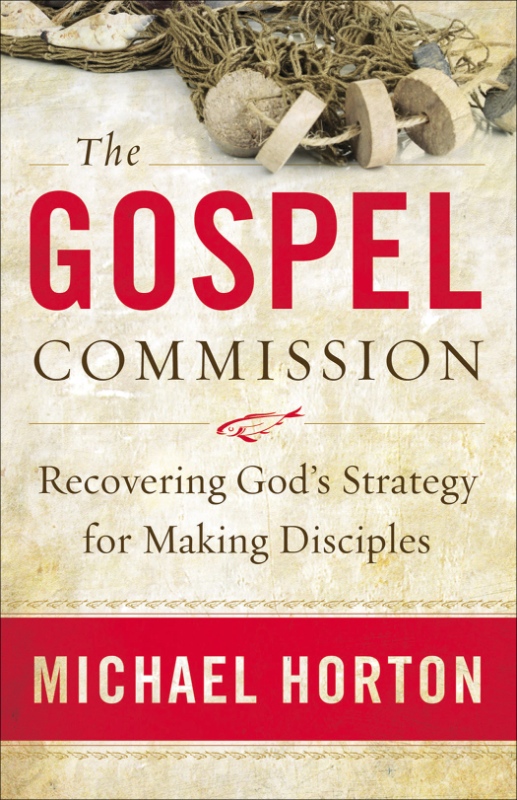

2011 by Michael Horton
Published by Baker Books
a division of Baker Publishing Group
P.O. Box 6287, Grand Rapids, MI 49516-6287
www.bakerbooks.com
E-book edition created 2010
All rights reserved. No part of this publication may be reproduced, stored in a retrieval system, or transmitted in any form or by any meansfor example, electronic, photocopy, recordingwithout the prior written permission of the publisher. The only exception is brief quotations in printed reviews.
ISBN 978-1-4412-3215-1
Library of Congress Cataloging-in-Publication Data is on file at the Library of Congress, Washington, DC.
Unless otherwise indicated, Scripture is taken from The Holy Bible, English Standard Version, copyright 2001 by Crossway Bibles, a division of Good News Publishers. Used by permission. All rights reserved.
Scripture quotations marked NIV are taken from the Holy Bible, New International Version. NIV. Copyright 1973, 1978, 1984 by Biblica, Inc. Used by permission of Zondervan. All rights reserved worldwide. www.zondervan.com
Scripture quotations marked NKJV are taken from the New King James Version. Copyright 1982 by Thomas Nelson, Inc. Used by permission. All rights reserved.
Scripture quotations marked NRSV are taken from the New Revised Standard Version of the Bible, copyright 1989, Division of Christian Education of the National Council of the Churches of Christ in the United States of America. Used by permission. All rights reserved.
Acknowledgments
It is impossible to thank all those pastors, missionaries, teachers, and fellow saints who have formed my interest in this topic. I am especially grateful to Lesslie Newbigin, late missionary bishop in India, for his friendship and instruction. Thanks also to my colleagues at the White Horse Inn and Westminster Seminary California, as well as Pastor Michael Brown and the faithful saints at Santee. I am also grateful to the fine team at Baker, especially Robert Hosack and Wendy Wetzel.
Introduction
A gracious disturbance is at work in the world today. With the resurrection of Jesus Christ, the age to come has broken into this present evil age. Its not business as usual. God isnt coming alongside us to empower us for our projects of personal and social transformation. God did not become flesh and suffer an ignominious death at our hands so that we could have sprawling church campuses, programs, and budgets. Theres something more profoundmore radicalgoing on. But what is it?
In Christ, God has broken into our world of sin and death and is even now bringing the powers of the age to come into the present age by his Word and Spirit. It is a profound disturbance of our lives and our world: disorienting, dividing, and delivering us from the supposed givens of what we thought were reality.
But for that reason, its a gracious disturbance. God is interrupting the regular news to bring us a special report and through us is bringing this report to the ends of the earth. Around this news from heaven the Spirit is gathering a colony or embassy of grace in a world of fear, guilt, rebellion, and distraction. Jesuss mandate in the Great Commission is a lodestar for refocusing our mission as Christians and as churches on the central calling for this time between Christs two comings.
Why another book on the Great Commission? Like others, I am concerned that we are being distracted in our churches today by mission creep. According to Wikipedia, mission creep is the expansion of a project or mission beyond its original goals, often after initial successes. The term was originally coined in a 1993 Washington Post article on the UN Peacekeeping mission in Somalia, in which the writer argued that a humanitarian mission turned into a military operation which did not have clearly spelled-out goals and for which the soldiers on the ground were not prepared.
In Christless Christianity , I paint an unflattering but documented portrait of the message that seems to pervade contemporary churches. Following closely on its heels, The Gospel-Driven Life focuses on the core Christian message and its radical implications for our lives in the world. My goal in The Gospel Commission is to call us away from mission creep, centering our discipleship and our churches on the very specific sources, goals, strategies, and methods that Christ mandated for this time between his two comings.
The Empire to Which We Are Sent
When I was growing up, nearly everyone in my immediate and extended family on both sides was raised a Southern Baptist or at least an evangelical of some sort. Today, some are hostile toward Christian institutions and official doctrine. Others affirm a childhood experience of getting saved with fond recollection, even if this experience is apparently irrelevant to their current beliefs and commitments. But when the conversation moves to the deep endnamely, to doctrine and discipleship (especially in relation to the church)everybody crawls out of the pool as if someone had cried, Shark! Kept to the level of slogans and experiences, spirituality is fine. The problem is organized religion, which usually means anything associated with actual beliefs and practices that are shared by a specific, concrete, and visible community of Christians. Some of these relatives have not been to church in years but would be deeply offended at any insinuation that they might not be Christians. So we mostly avoid the topic. Theyre family, but when it comes to the faith, its easier to talk to a stranger on a plane. I could relate similar stories of friends with whom I graduated from a conservative evangelical college.
These experiences are far from unique in our culture today. This story will resonate with people who grew up in Roman Catholic, Orthodox, mainline Protestant, evangelical, and Pentecostal families.
In fact, its interesting how many of Americas pop culture icons have a conservative Protestant background. Ted Turner, the CNN founder who famously said Christianity is for losers, attended a Christian school in his youth. Actress and New Age advocate Shirley MacLaine was raised in a staunch Southern Baptist home. Playboy s Hugh Hefner relates, I was a very idealistic, very romantic kid in a very typically Midwestern Methodist repressed home. There was no show of affection of any kind, and I escaped to dreams and fantasies produced, by and large, by the music and the movies of the 30s.
Raised in a Progressive Missionary Baptist church, Oprah Winfrey loved to quote Bible verses and relate Bible storiessometimes even in church, where she says she began her public career before an audience. In fact, her friends at school dubbed her Preacher Woman. As LaTonya Taylor relates, To her audience of more than 22 million mostly female viewers, she has become a postmodern priestessan icon of church-free spirituality.
In a denomination in which liberal is the new traditionalism, retired Episcopal bishop John Shelby Spong boasts appearances on Larry King Live , attacking the Christian creed with a blend of sarcasm and poor scholarship. The author of Rescuing the Bible from Fundamentalism (which, as it turns out, means Christianity), he was raised in a fundamentalist home and church.
Similar hostility toward organized religion (especially Christian orthodoxy) was evident among the pioneers of the Enlightenment and Romanticism. Thinkers like Kant, Lessing, Hume, Hegel, Schleiermacher, Feuerbach, Marx, and Nietzsche were reared in evangelical pietism. Many were children of pastors, and most of them even pursued theological studies in preparation for the ministry. Successive waves washed away layers of Christian consciousness: from the Christ of the creed to the inner experience and piety of Jesus as moral example, to the rejection finally of bothin favor of nature-mysticism or atheism.
Font size:
Interval:
Bookmark:
Similar books «The Gospel Commission: Recovering Gods Strategy for Making Disciples»
Look at similar books to The Gospel Commission: Recovering Gods Strategy for Making Disciples. We have selected literature similar in name and meaning in the hope of providing readers with more options to find new, interesting, not yet read works.
Discussion, reviews of the book The Gospel Commission: Recovering Gods Strategy for Making Disciples and just readers' own opinions. Leave your comments, write what you think about the work, its meaning or the main characters. Specify what exactly you liked and what you didn't like, and why you think so.

